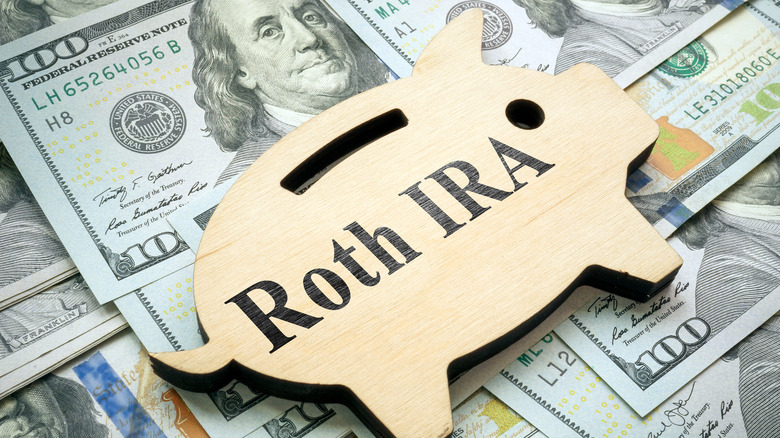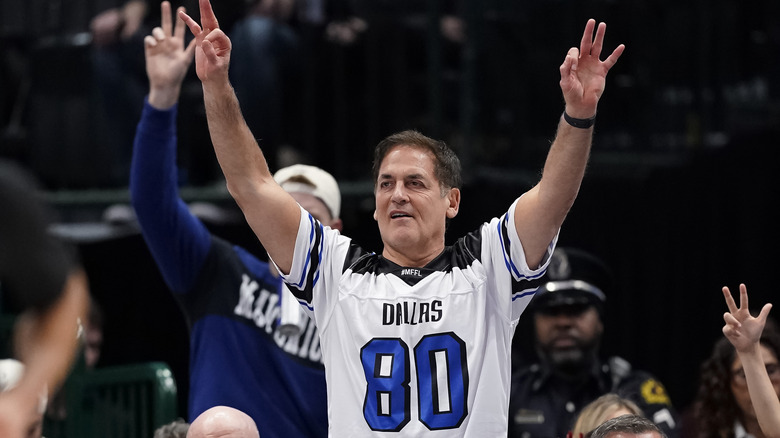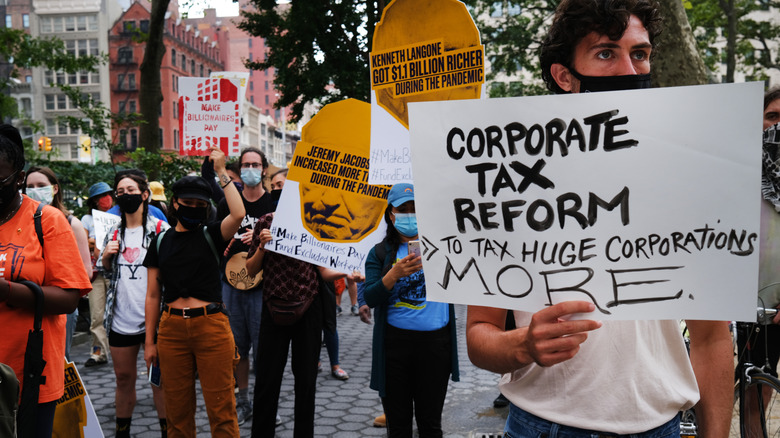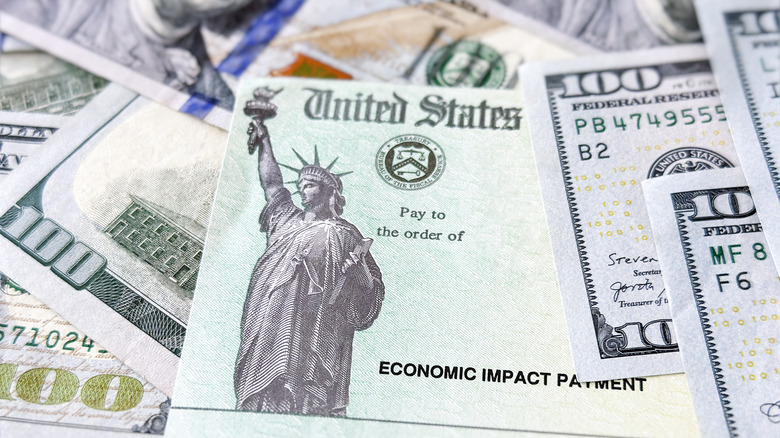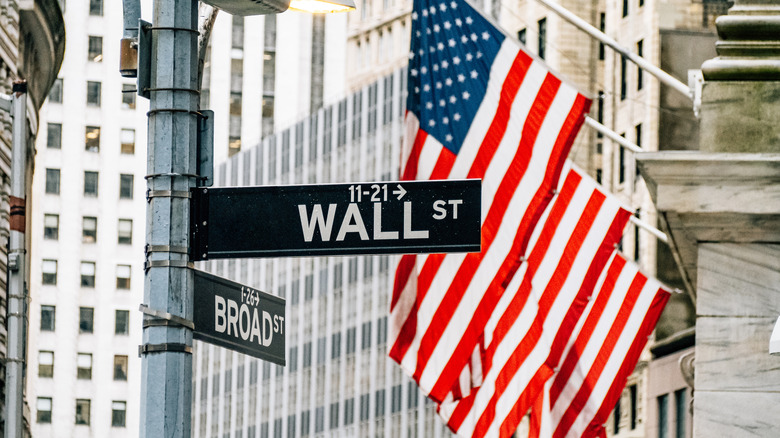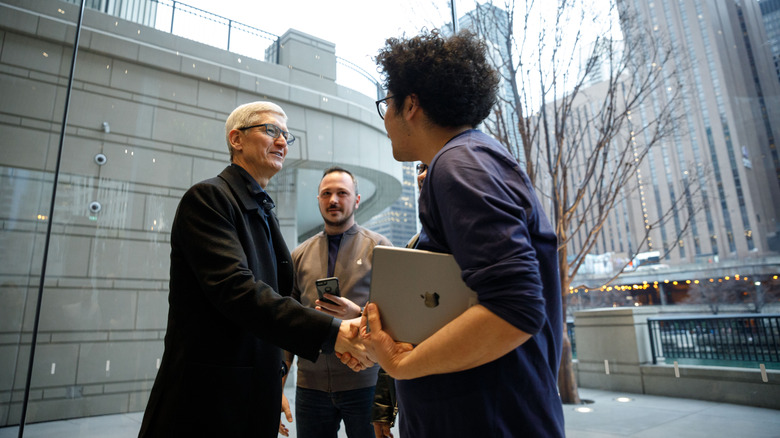How Millionaires Avoid Paying Taxes Without Breaking The Law
If there's any question about the value of paying a professional to do your taxes, the way the wealthy in the U.S. have managed to escape paying them should serve as an affirmation. The U.S. Department of the Treasury found that some $600 billion a year in taxes, the equivalent of $7 trillion over the next 10 years, never makes it back into the nation's coffers. With $160 billion of that missing money attributed to the top one percent of income earners, the IRS estimates that overhauling tax enforcement through government investment could bring an additional $460 billion to $1.6 trillion in into the system.
President Biden's proposal of an $80 billion overhaul of the IRS would focus on tax evasion perpetrated by Americans earning a million dollars or more annually. Although their ranks have doubled since 2012, they are audited 72% less, which is the equivalent of two out of every 100 millionaires and billionaires per year. If you're wondering why none of them go to prison for this, it's because the loopholes in the tax laws allow them to circumvent the rules legally. The result of this legal tax evasion is America's wealth paying out 0.5% in taxes, a mere pittance in relation to their accumulation of wealth. Here are a few of the ways millionaires and billionaires pay taxes without breaking the law.
Avoid selling stock
A familiar scene in films like the "Wolf of Wall Street" or the Oliver Stone classic "Wall Street" is the chaotic nature of trading floors. The buzz of buying and selling stocks for little fish — while chasing rich whales — helps drive these storylines and can give the general public the misperception that frantically buying and offloading stock every day is the path to wealth. Charlie Munger was Warren Buffett's right-hand man at Berkshire Hathaway before passing away in 2023 at 99 years old. One of Munger's top 5 best investing tips was to play the long game by not prematurely interrupting the compounding of your return on investment. This is one reason not to do it.
Unsold stocks are free from capital gains tax, which only comes into play when the stock or asset is sold. According to Oxfam, unrealized capital gains not only allow the wealthy to build their riches through returns on their investments but also to leverage their untaxed gains as collateral to create additional lines of credit. They are effectively double dipping since they're in a position to sit on their investments until they accrue in value, and also borrow against them for additional, untaxed sources of capital now. Elon Musk is known to employ this maneuver to gain access to billions in nontaxable lines of credit with his shares in Tesla and SpaceX, the latter of which he borrowed a billion dollars from around the time he purchased Twitter.
Roth IRAs
Individual Retirement Accounts (IRAs) are another way for self-employed individuals without access to a 401(k) to save money as part of a long-term retirement plan through stocks, bonds, mutual funds, and exchange-traded funds (ETFs). While traditional IRAs are tax-deductible without having to pay taxes until withdrawal, Roth IRAs offer no tax deductions but are free from being taxed upon withdrawal.
According to Bloomberg, Roth IRAs shield investments from taxation upon withdrawal so long as their accounts stay within the contribution threshold of $6,500 — $7,500 for people 50 years of age and up each year and you pay taxes on contributions upfront. Roth IRAs provide a backdoor for millionaires to avoid paying big taxes on their investment gains once they cash out. If through your connections you could gain preferential treatment as an early investor in a unicorn like Google, the value of your $6,500 contribution in 20 years could be in the millions of dollars. According to ProPublica, Tech billionaire Peter Thiel demonstrated the effectiveness of this Roth IRA strategy by picking up 1.7 million pre-IPO shares of PayPal, the company he co-founded, and other companies like Facebook and Palantir for next to nothing. The value of those investments today totals in the billions, none of which Thiel will pay any tax on when he cashes out.
Sports team ownership
The billionaire sports team owner is a well-known character in the world of sports, made most famous by Dallas Mavericks owner Mark Cuban. One of Cuban's best tips for managing your money is to spend on your future, not your present. Buying a sports team has proven itself to be a great way for the wealthy to do just that.
According to Inequality.org, the IRS allows sports organizations to deduct 90% of their expenses from deteriorating assets, which include things like brand loyalty, recognition, and player contracts for 15 years. In one example, Golden State Warriors co-owner Robert Piccinini claimed $16 million in deductions between 2010 to 2014 for a team he helped buy for $450 million in 2010, valued at $1.3 billion by the time of his death in 2015. He avoided paying any taxes for gains made by the team by never selling his ownership, and after his death, his heirs were allowed to reset the clock for another 15 years while also claiming deductions for expenses. If you were to buy a team for $4 billion with 90% of that considered deteriorating assets, that would be $3.6 billion that could be claimed as expenses — $240 million per year deducted from your profit — which compounds the amount you save on taxes to the tune of millions of dollars.
Corporate tax breaks and write offs
What would typically be considered a red flag on your taxes that could get you audited isn't something many millionaires need to worry about. Excessive tax deductions for individuals or small businesses tend to get the attention of the IRS, who use software to compare and contrast deductions for similar businesses and individuals to see if your deductions match up. Seems pretty straightforward. For the wealthy, it's far from.
Billionaires have been able to write off everything from thoroughbred racehorses to money-losing businesses due to navigating an obscure tax law called the "hobby loss" rule. While hobbies aren't considered tax-deductible, legitimate businesses are. As far as the IRS is concerned, if something looks like a legitimate business on paper, it's eligible to deduct its losses from taxes. The way to do that is to show some revenue within five years of the company's existence, and enough in the way of accreditation and qualified labor to prove the business's legitimacy. Gaming the system involves having a team of accountants who know how to play the game. In this case, knowing when to show a profit and when to write off a loss on income — which comes back to you as a tax return so it isn't actually a loss — is how it's done.
Reporting low incomes to qualify for assistance
COVID-19 lockdowns were financially difficult for everybody. Apparently, even the wealthiest among us had to ask for some help. According to CBS News, 270 of America's richest people, including 18 billionaires, were granted a first round of stimulus checks in 2020. They did this by employing the tactics in this article to deduct enough income to fall under the $75,000 to $150,000 threshold for tax-paying singles and couples respectively. On this list of wealthy Americans getting stimulus checks was financier Ira Rennert, worth $3.7 billion, and philanthropist George Soros, reportedly worth over $7 billion and obviously less shy about taking donations than he is about giving them.
Soros also paid no federal income taxes for two years between 2016 and 2018 after showing losses on his investments that had him claiming no income. Meanwhile, Rennert deducted $355 million from $64 million in income in 2018, which made him appear to be hundreds of millions of dollars in the hole. So while the majority of working-class Americans waited for the stimulus checks with bated breath to pay for necessities like shelter and food, millionaires and billionaires — who were broke on paper — sat on their plush tax deductions waiting for taxpayers to add to their expanding wealth.
Passing wealth on to future generations
A popular saying goes, you can't take it with you. While that's true, even for millionaires, it turns out that their families can keep their wealth and add on to it without being taxed. Gift and inheritance taxes are supposed to be taxed at an average rate of 40%, but the way this currently plays out due to a tax policy that exempts between $11.7 million for individuals and $23.4 million for couples, it's more like two percent. More than that, assets like art, stocks, and housing could be sold by their heirs free from any tax whatsoever.
This is nothing new. Some of America's wealthiest families for instance — the Scripps, Mars, and Mellons — have secured their combined $114 billion in riches for future generations from the 1900s to today through their support of anti-taxation movements and clever trust arrangements. The newest version is dynasty trusts. Dynasty trusts allow the wealthy to defer estate taxes for several generations as long as the money is disbursed through the trust and doesn't generate a profit. It moves first to children, then grandchildren, and so on until reaching the last generation of recipients who would have to finally pay taxes on their inheritance.
Invest, borrow, and die
The phrase "beg, borrow, and steal" encapsulates the legend of how average Americans figure out how to make ends meet. Noticeably absent from the saying is work, which doesn't appear to be helping the average taxpayer in the same way it does the ultra-rich. Meanwhile, the wealthy ascribe to a different ethos altogether. Invest, borrow, and die.
This breaks down to buying assets like homes or stocks and avoiding the capital gains by not selling them, using those tangible and intangible assets as something to borrow credit against as those assets continue rising in value, deducting the premium interest on those lines of credit and loans, and employing maneuvers like the previous slide's dynasty trusts to avoid having their heirs pay their fair share of taxes on those assets. In other words, the wealthy spend their money on assets they know will be worth more than the loans they take out, avoid spending their own wealth by taking out lines of credit they have no intention of paying off, and make further gains by deducting the interest payments on their loans from the taxes before handing all that accumulated wealth over to their children who will also not pay taxes on any of it.
Making money from depreciating assets
Sports teams create tax avoidance opportunities for the wealthy by allowing them to write off loss-generating, depreciating assets. However, this applies to more than just sports teams. Alongside business expenses, their mansions, penthouses, lakefront lodges, commercial buildings, equipment, vehicles, and even furniture all fall under the realm of depreciating assets if they have ownership of the properties, they remain in use for longer than a year, and can prove they are used for business purposes.
MACRS (Modified Accelerated Cost Recovery System) depreciation allows for business-related assets to be written off or deducted from the owner's taxes, starting at a higher rate of deductions and tapering off over time as dictated by a predetermined schedule. This is worked out by a complicated formula related to the cost of the asset, the depreciation rate set by the IRS, the number of years the asset has depreciated, and any additional depreciation bonuses that can be applied. While not all assets have the same amount of deductible depreciation time, almost any tangible item related to the business can be deducted anywhere from five years for computer equipment to 39 years for commercial properties.
Earning dividends on investments
Dividends are a form of loyalty payment that companies pay to shareholders either as cash, additional shares in the company, or reinvestment of more shares at a discounted price. They are usually paid out by established companies with little need to reinvest stocks back into the business, and they provide an additional stream of income for shareholders. Investing in a company that offers dividends to shareholders is a trick you can steal from Warren Buffett, who swears by dividend companies' compounded earnings and the bonus of being able to reinvest them in other stocks. If you think Warren Buffett is the only rich guy on the dividend train, you would be dead wrong.
Larry Ellison, co-founder of Oracle, owns over a billion shares of Oracle (ORCL). To give you a sense of what that dividend payout would look like, Nasdaq shows Oracle pays an annual dividend of $1.60 per share. If Ellison owns 1.1 billion shares, that should give you a sense of the kind of money on the table. Although dividends are taxable, dividends earned through Roth IRAs, or where annual income falls below $44,625 for individual taxpayers or $89,250 for married couples, are not. As mentioned earlier, Roth IRAs are a favorite of the wealthy, and the ability to write down depreciating assets and legally obfuscate income makes it possible for millionaires to show income of close to zero.
Philanthropy
Philanthropy is generally accepted as a good thing that selfless people do to give back to society. However, Inequality.org explains how the uber-rich use donations through foundations and donor-advised funds to write off taxes from income and exert influence over non-profit organizations. With just over 40% of each dollar being funneled through these foundations and funds, it turns out that 5% or less of that is obligated to be disbursed to charitable organizations in a year. In 2022, $111 billion in donations were deducted from the wealthiest families' taxes, basically becoming a subsidy for their foundations.
According to the Institute for Policy Studies, $73.34 billion in tax revenue disappeared into philanthropic organizations in 2022, with the private foundations responsible for making charitable donations holding on to almost half of that while claiming all of it to relieve their tax burden. Many of these foundations are used as lines of credit for outside purposes or come back to the rich in the form of trustee salaries. For instance, the H.E. Butt Foundation president earns $250,000 per year in that role. However, the president just happens to be married to a Butt heir. For the wealthy, charity begins at home.
Lobbying the government to their advantage
Perhaps the most egregious example of the wealthy peddling influence is through lobbying. According to a 2015 report by Public Citizen, there were nine families with a combined worth of $137 billion actively working to repeal estate taxes under the auspices of protecting small businesses and farmers. It just so happens that repealing estate taxes would save those families an estimated $25.7 billion to $54.8 billion in taxes each year. Two of those families, the Wegman and Mars families, spent over $3.5 million to lobbyists to get rid of estate taxes altogether.
Corporations have also gotten in on the act. In 2020, 55 of the most cash-heavy corporations in the U.S. spent a combined $450 million lobbying government officials to avoid paying more in corporate taxes, while also paying nothing in corporate taxes and pocketing $3.5 billion in tax rebates. ProPublica detailed how Republican Senator Ron Johnson's refusal to vote his approval of former President Donald Trump's tax bill in 2017 ended up shaping the bill in the favor of the wealthy through massive tax cuts for companies. The revision of the bill was spearheaded by two billionaire entities who donated $20 million to Senator Johnson's 2016 campaign.
Cutting their salaries (on paper)
In what may seem like an altruistic move, there are a number of CEOs taking pay cuts during this time of economic hardship for many. For example, Apple's CEO Tim Cook volunteered a 40% salary cut worth $49 million. That's down from the $99.4 million he was paid in 2022. Sounds conscientious, and perhaps, Cook's heart was actually in the right place when he decided to take the cut.
However, former President Donald Trump's 2017 tax bill made it easier for business owners who also paid themselves salaries to take advantage of a new loophole in the tax system. Since wages are taxed at a rate of 37% versus company profits at a rate of 29.6% it would make sense to reflect more of that as your company's earnings than as your personal salary. Hence, the top salaries of the highest-earning CEOs suddenly nosedived on the next year's tax statements, with some salaries dropping as much as 90% or more. That money can then come back in the form of dividend payments.


